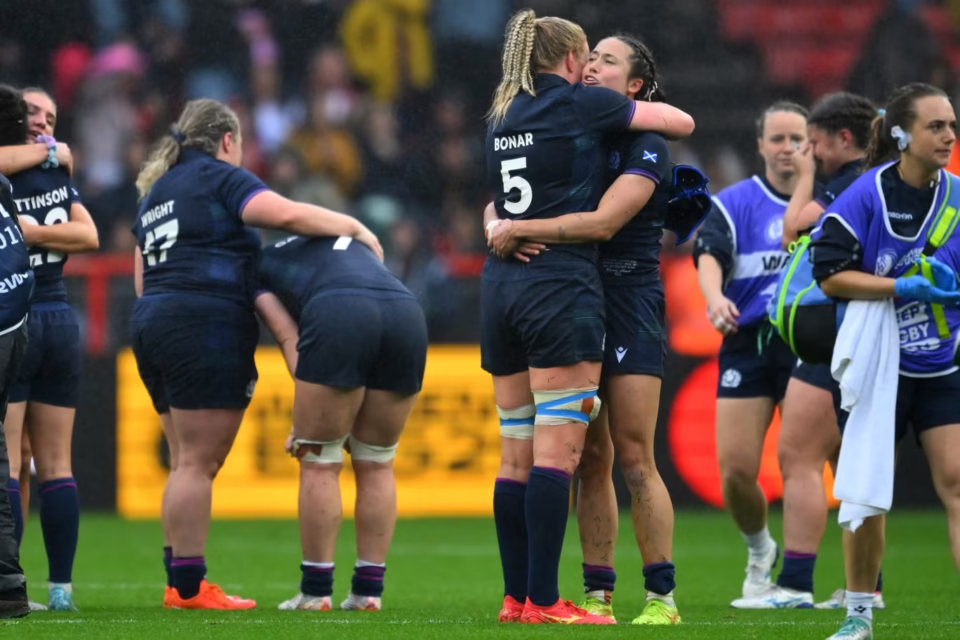(Sports Correspondent: Imran Sohail)
Scotland and Australia Reflect on Progress Amid Uncertain Futures at Women’s Rugby World Cup
Bristol, September 2025: While England and Canada advanced to the Women’s Rugby World Cup semifinals from Ashton Gate, Scotland and Australia left Bristol with plenty to reflect on. Both teams showed notable progress but also highlighted ongoing challenges in women’s rugby, particularly around contracts, funding, and squad stability.
Scotland Faces Contract Challenges
Scotland’s campaign ended with a 40-8 defeat to England, yet the squad made significant strides despite off-field challenges. Jade Konkel, the team’s veteran No. 8, announced her international retirement after not receiving a contract beyond the tournament. Reports indicate that 17 of the 32-player squad were without contracts, creating uncertainty and stress for players in the lead-up to the World Cup.
Captain Rachel Malcolm acknowledged the mental and emotional strain caused by contract issues but expressed hope for fresh investment in Scottish women’s rugby. Head coach Bryan Easson, who is leaving his role after the tournament, also emphasized the need for consistent support and resources to ensure long-term growth.
Despite these hurdles, Scotland earned praise from opponents and World Rugby officials alike for playing their best rugby in years, with England back Helena Rowland noting their progress and the value of continued investment.
Australia’s Young Talent Shines
Australia, too, made the quarter-finals, showcasing a developing and youthful squad under outgoing coach Jo Yapp. The Wallaroos have invested in young talent, including 18-year-old star Caitlyn Halse, alongside fly-half options aged 17, 20, and 22. While the team’s inexperience was evident at times, their performance signals promise ahead of the 2029 home World Cup.
Captain Siokapesi Palu stressed the importance of continuity and full-time support for the team. Many players juggle family commitments and full-time jobs alongside elite-level training, highlighting the ongoing need for professionalisation in women’s rugby programs.
Looking Ahead
Both Scotland and Australia’s campaigns reflect genuine progress amid structural challenges. For Scotland, addressing contract uncertainties and retaining key players like Konkel is crucial. For Australia, continuity and support for young athletes will be vital in building a competitive squad for the future.
The tournament has reinforced that while results matter, investment, stability, and professional support remain essential for the growth of women’s rugby globally.

